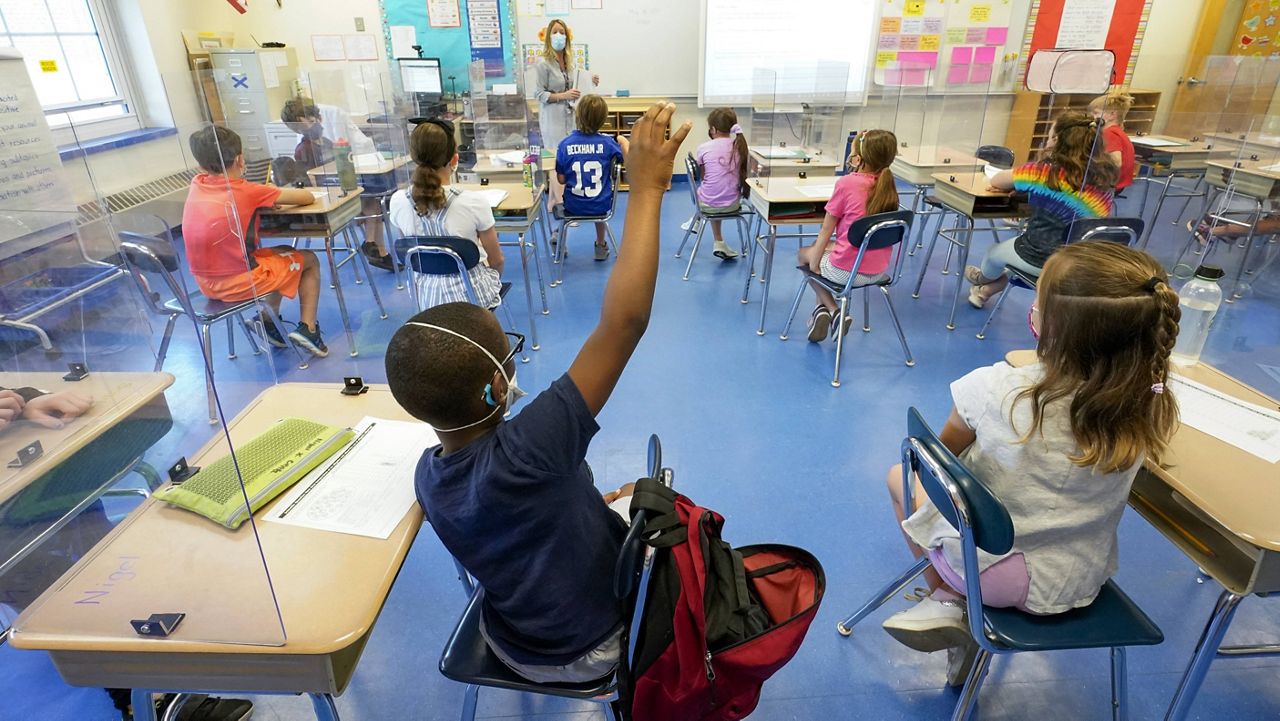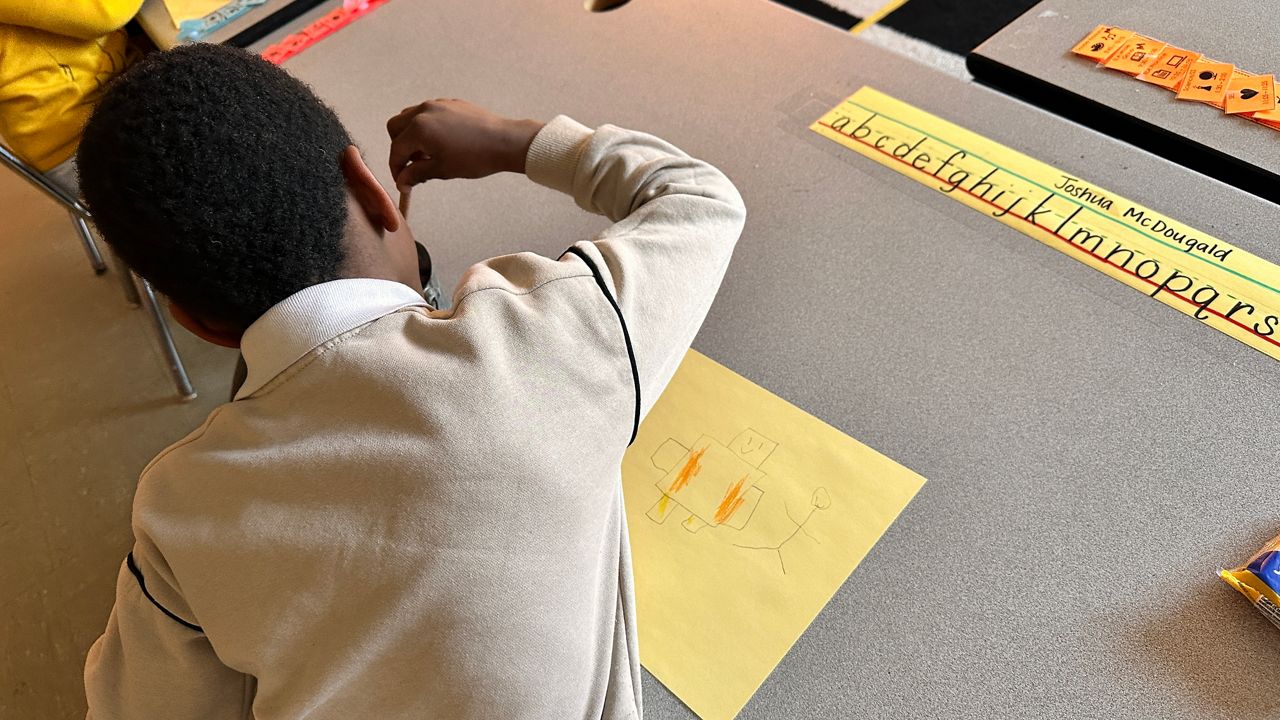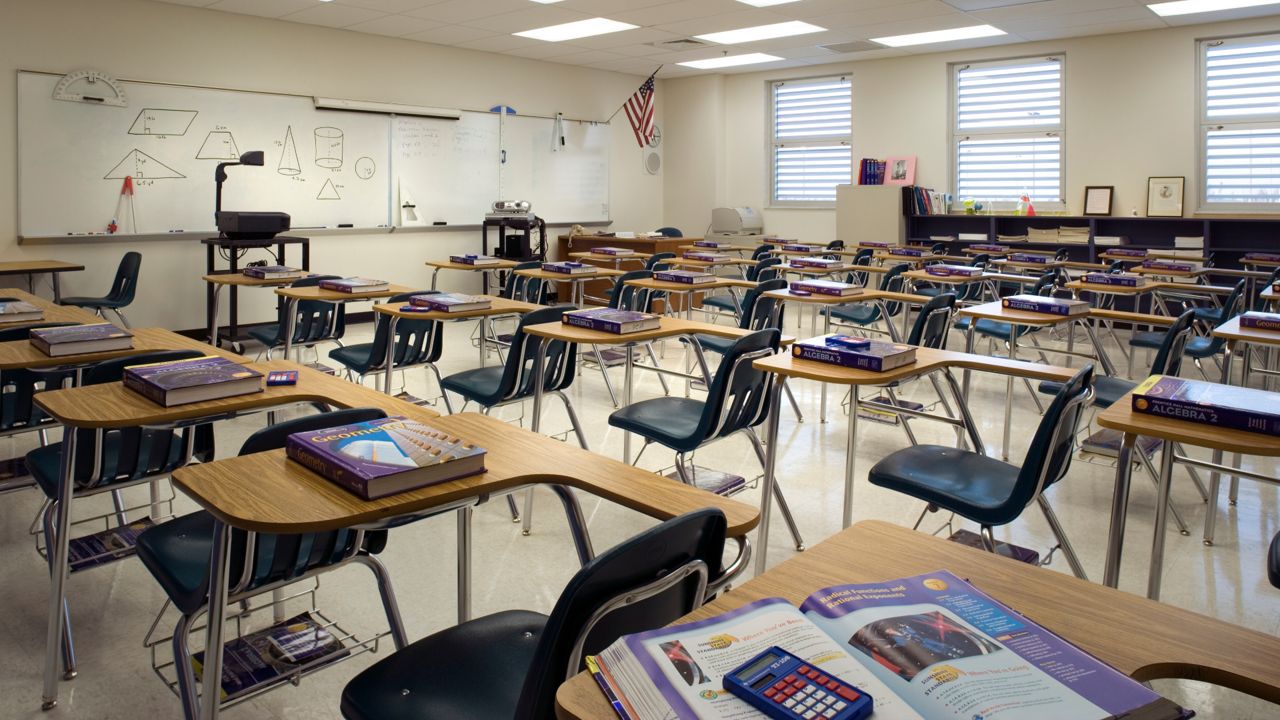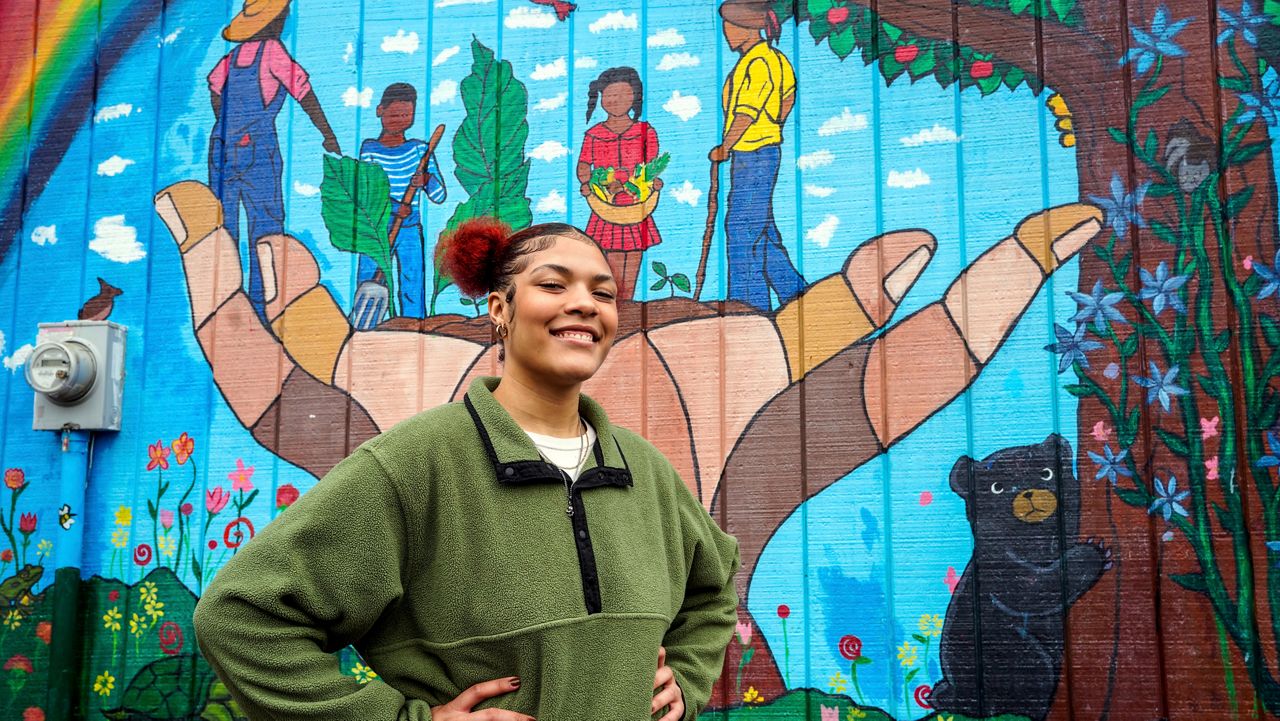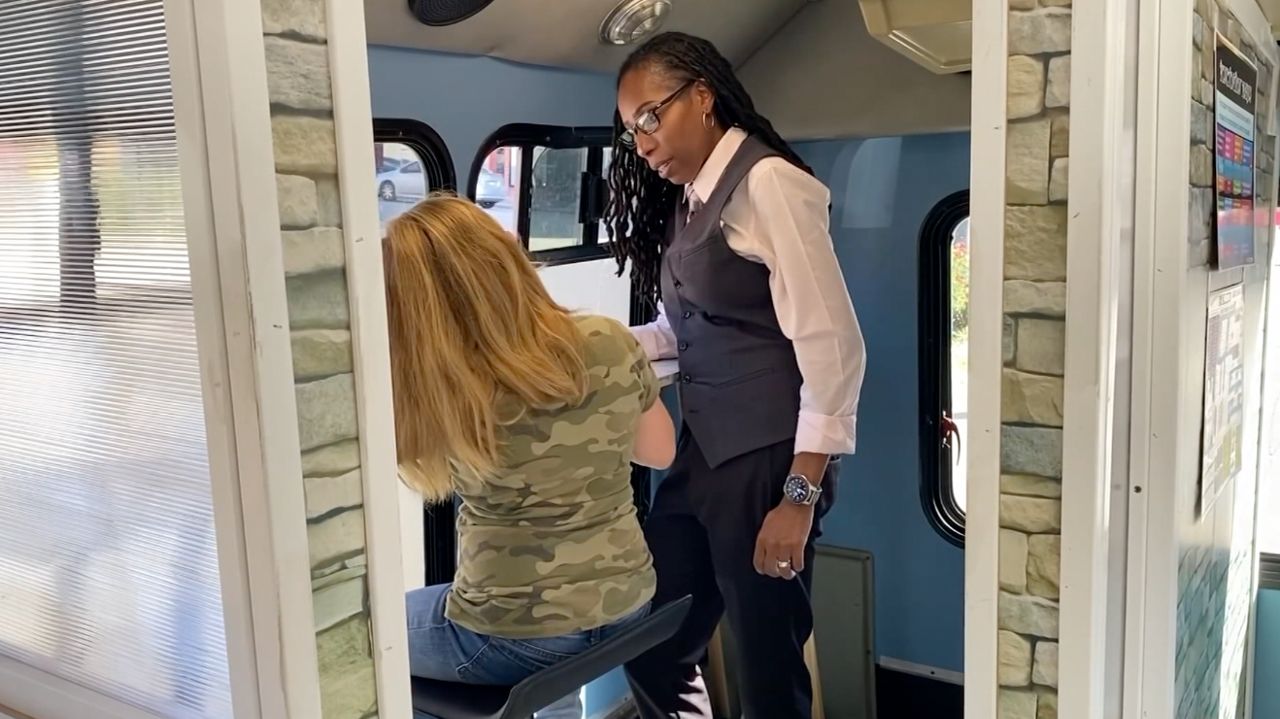Many students in North Carolina’s public schools did not step foot inside a classroom last year. The ones who did go back faced ever-changing coronavirus rules for masks, social distancing, contact tracing and quarantining.
When schools start up again this fall, every district in North Carolina will bring students back into the classroom for something that will at least be closer to a “normal year.”
“Our teachers are ready to meet our students face-to-face, they have missed them. Our students have missed their teachers,” said Lucy Edwards, a school board member in Northampton County, a rural county in northeast North Carolina.
“We’ve really realized how important it is to have that face-to-face learning, even though our teachers did their very best with the online instruction. But that face-to-face learning, we know, makes all the difference in the world,” she said.
Edwards, who worked in education for 42 years and is now the president-elect of the North Carolina School Boards Association, said Northampton County has worked up detailed plans to get students back in the classroom and return to extracurricular activities and sports.
On the other side of the state, in Asheville and Buncombe County, officials there are still finalizing plans for students to be back in person.
“We have people that are ready to jump back in full-force and want to just go back to the way things were, and we’re not quite there yet,” said Amy Churchill, a member of the Buncombe County School Board and president of the North Carolina School Boards Association.
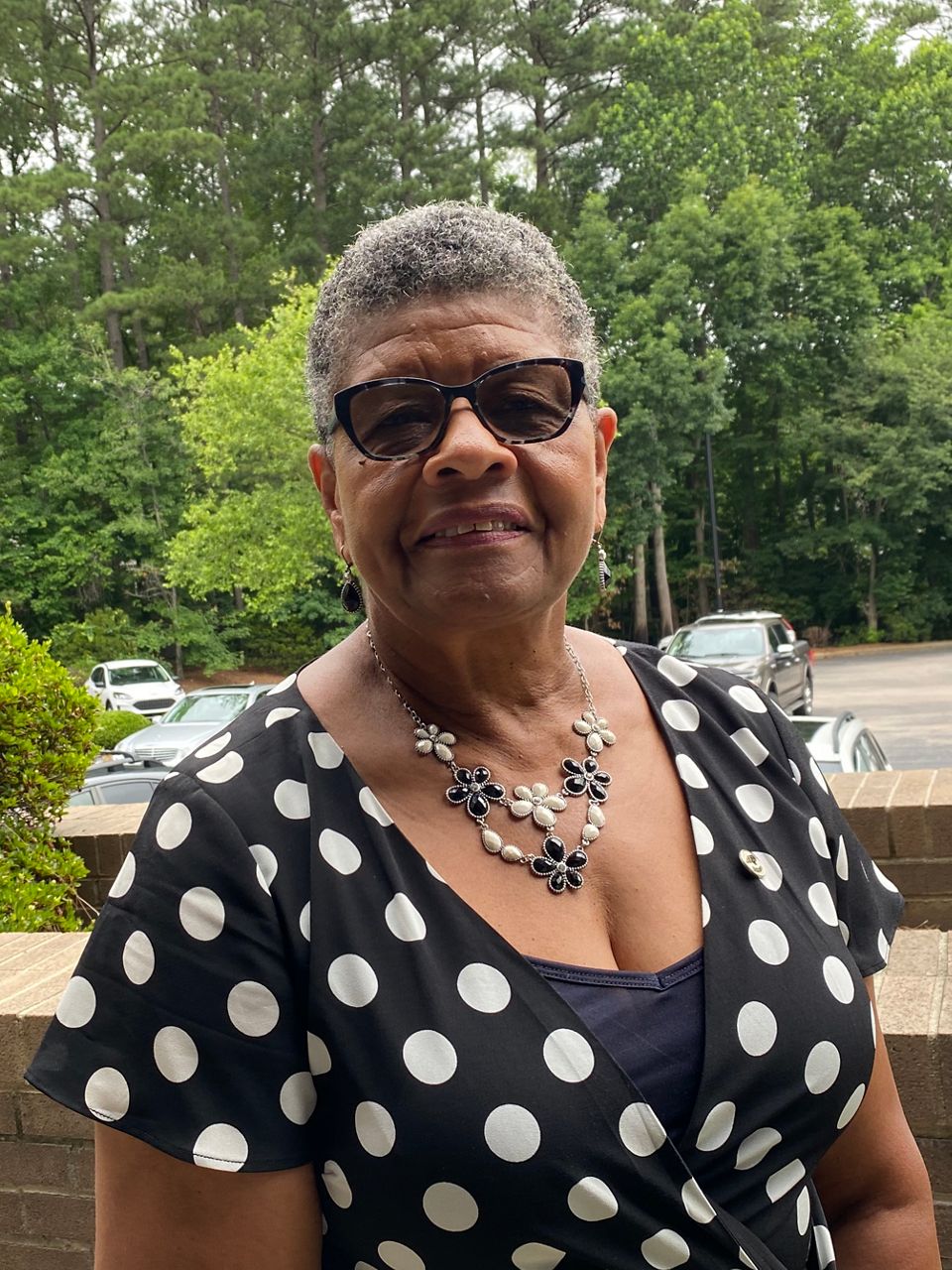
“There is some difference of opinion and some are more vocal than others,” she said. Some of the most vocal, Churchill said, do not have kids in the school system.
Those debates over coronavirus rules have become familiar around North Carolina and the rest of the country, specifically about when and where people have to wear face masks and whether to get vaccinated.
Researchers who studied the return to classrooms over the past year in North Carolina have one main message: masks work.
A new report from the ABC Science Collaborative, led by Duke University, found that masks effectively stopped the virus from being passed around schools.
“With masking, the schools clearly can safely deliver face-to-face education for children and adults. They can have one, two or three children (per seat) on the school buses. The amount of distancing, whether it’s less than 6 feet, less than 3 feet or no distancing at all, it didn’t make any difference at all,” said Duke’s Dr. Danny Benjamin, a co-chair on the study.
“This means that we don’t have to close schools again. We don’t have to have remote instruction. We’ve got tools that will keep children and adults safe in schools,” he said.
Whether to require masks in schools, on buses and during activities may come down to what the governor says before traditional calendar schools start back up in August.
“On everybody’s mind is: are kids going to have to wear masks?” Churchill, with the Buncombe County Board of Education said in a recent interview. “The governor really hasn’t put anything new out there yet, so as of now, the answer is yes.”
Under the current rules, staff will also have to wear masks, even if they are vaccinated.
Churchill said school districts will just have to wait and see what orders or guidance comes out of the governor’s office.
Noting the release of the new study on masks in schools, State Superintendent of Public Instruction Catherine Truitt said, “It’s clear that schools could operate within Plan A in a safe and healthy way, while providing important face-to-face instruction for students. Seeing how successful North Carolina schools were in limiting transmission at a time when vaccination rates were relatively low gives me great optimism for the fall."
"Knowing that school districts are entering the new school year with higher vaccination rates for adults gives me hope that we will see mask mandates removed for K-12 students in the fall. As a proponent for local control, I believe this should be a local decision – one made by school boards in tandem with parents, based on what’s best for their student population,” Truitt said in a statement.
“We know that if our goal is to reduce transmission of COVID-19 in schools, there are two effective ways to do that. 1: Vaccination. 2: Masking,” said Dr. Kanecia Obie Zimmerman, a Duke pediatrician and co-chair of the ABC Science Collaborative.
“The science suggests masking can be extremely effective, particularly for those who can’t get vaccinated while COVID-19 is still circulating,” she said.
Children as young as 12 can get Pfizer’s coronavirus vaccine for free in North Carolina. The two-dose Pfizer vaccine is the only COVID-19 shot approved for use in people under 18 years old.
In North Carolina, almost 105,000 people in the 12 to 17 age range are fully vaccinated and almost another 20,000 have gotten one shot, according to state Department of Health and Human Services data. That’s about 15.5% of the 12- to 17-year-olds in North Carolina.
“This vaccine is very safe and effective and can be given at the same time as vaccines required for school,” State Health Director and NCDHHS Chief Medical Officer Dr. Elizabeth Cuervo Tilson said in a news release. “We encourage all parents to talk with their preteen’s or teen’s doctor about this important vaccine and its benefits.”
There’s been more concern in North Carolina about the spread of the Delta variant, which is more contagious and potentially more deadly, according to public health officials.
“The Delta variant has become the top of the news,” said Dr. Tom Belhorn, a pediatrician with UNC Health. “There’s much more virus in the nose during replication and so it’s easier to transmit.”
The new variant is spreading faster in areas with lower vaccination rates, he said.
“If we could snap our fingers and have everyone immunized in the whole world, well, we wouldn’t have a problem with the variants coming through,” he said.
For Belhorn it’s about time for kids to get back to the classroom in person. But first, they need to get out and enjoy the summer.
“I am happy and have always supported the recommendations by the American Academy of Pediatrics to get children back in school,” he told Spectrum News 1. “I am happy to hear places are going back to in-person school with, hopefully, sports, music, arts and all the things that can go with it.”
For his patients, Balhorn said, “so many have been inside in front of the computer for much of the year and now’s the time to please encourage activities outside, physical activity for their mental health, for their physical health.”
Churchill, with the Buncombe County Board of Education, said schools in her district will also be focusing on every aspect of students’ health.
“I don’t care if you are the number 1 kid in your class, this past year has affected you, probably emotionally and academically,” she said. “So there’s going to be a big push to have that social-emotional learning piece at the forefront and the academic piece so we can get our kids back up to speed.”
“I think our kids did a great job of weathering the storm,” Churchill said. She said there could be a silver lining to the experience these students have gone through over the past 15 months.
“In the future, these kids may be our latest Great Generation because they are learning to persevere, they are learning critical thinking skills, how to think outside the box, how to handle themselves when things don’t go the way we think they should go. And they do a much better job than we do as adults,” she said. “I am very encouraged to see the type of leaders we’re going to see in the next 10 years because of this pandemic.”
With the new Delta variant spreading around North Carolina and vaccination rates lagging compared to the rest of the country, there are still plenty of unknowns about the next school year. But educators, along with public health officials and doctors, are getting ready to welcome kids back into the classroom, even if it isn’t all quite back to “normal.”




